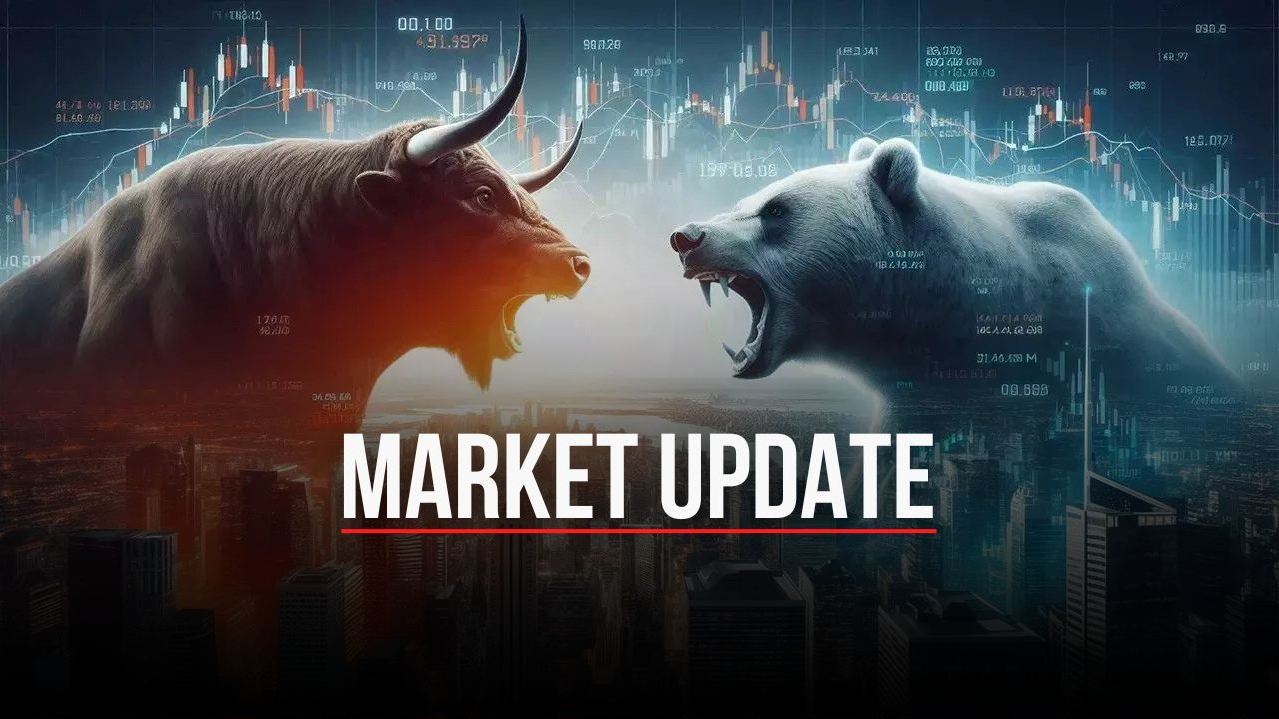

India's benchmark stock indices experienced a significant downturn on Tuesday, April 1st, the first trading session of the new financial year. Investor sentiment soured considerably amid anxieties surrounding a looming US tariff deadline (April 2nd), leading to widespread selling pressure, particularly concentrated in the Information Technology (IT) and banking sectors.
The selling pressure intensified as the trading day progressed. Around 2:45 PM IST, the BSE Sensex was trading sharply lower by approximately 1,396 points, or 1.80%, settling near the 76,019 mark. Similarly, the NSE Nifty 50 index dropped around 365 points, or 1.55%, slipping below the crucial 23,200 level to trade near 23,154.
Market volatility spiked noticeably, indicating rising fear among investors. The India VIX (Volatility Index), often referred to as the "fear gauge," surged by 9 percent to reach the 14 level, suggesting heightened uncertainty and risk perception in the near term. Despite the sharp fall in indices, the market breadth showed more advancing shares (around 2,470) than declining ones (around 1,089) in the broader market, though selling pressure was evident in heavyweight stocks.
Market participants attributed the sharp correction primarily to nervousness ahead of potential trade tariff announcements by former US President Donald Trump, with a deadline reportedly set for April 2nd. Concerns exist that new tariffs, potentially including measures like a 25 percent tariff on foreign cars and auto parts, could exacerbate global inflationary pressures. This, in turn, might limit the US Federal Reserve's flexibility in moderating interest rates, impacting global liquidity and growth prospects. Reflecting these anxieties, investors rushed towards safe-haven assets. Gold prices surged past $3,125 per ounce, touching fresh all-time highs near $3,161 as risk aversion dominated market sentiment.
The impact was felt across most sectors, with those heavily reliant on international markets, particularly the US, bearing the brunt.
The weakness extended to the broader market as well, with the Nifty Midcap 100 and Nifty Smallcap 100 indices slipping 0.8% and 0.5%, respectively. Analysts noted that while these indices have seen strong rallies earlier in the year, valuation concerns persist.
Despite the widespread gloom, some stocks bucked the trend:
On the flip side, besides the major IT and financial names mentioned earlier, HCL Tech, Bajaj Finserv, Infosys, HDFC Bank, and Bajaj Finance were the top drags on the Nifty 50 index. Top gainers included IndusInd Bank, Trent, Bajaj Auto, Jio Financial Services, and HDFC Life Insurance Company.
The sharp sell-off on the first day of the financial year underscores the market's sensitivity to global macroeconomic cues, particularly potential trade protectionism. While domestic factors and specific stock stories offered some bright spots, the overarching sentiment was dominated by caution ahead of the US tariff deadline, leading investors to reduce exposure, especially in globally-linked sectors. The heightened volatility suggests traders are bracing for potential turbulence in the near term.